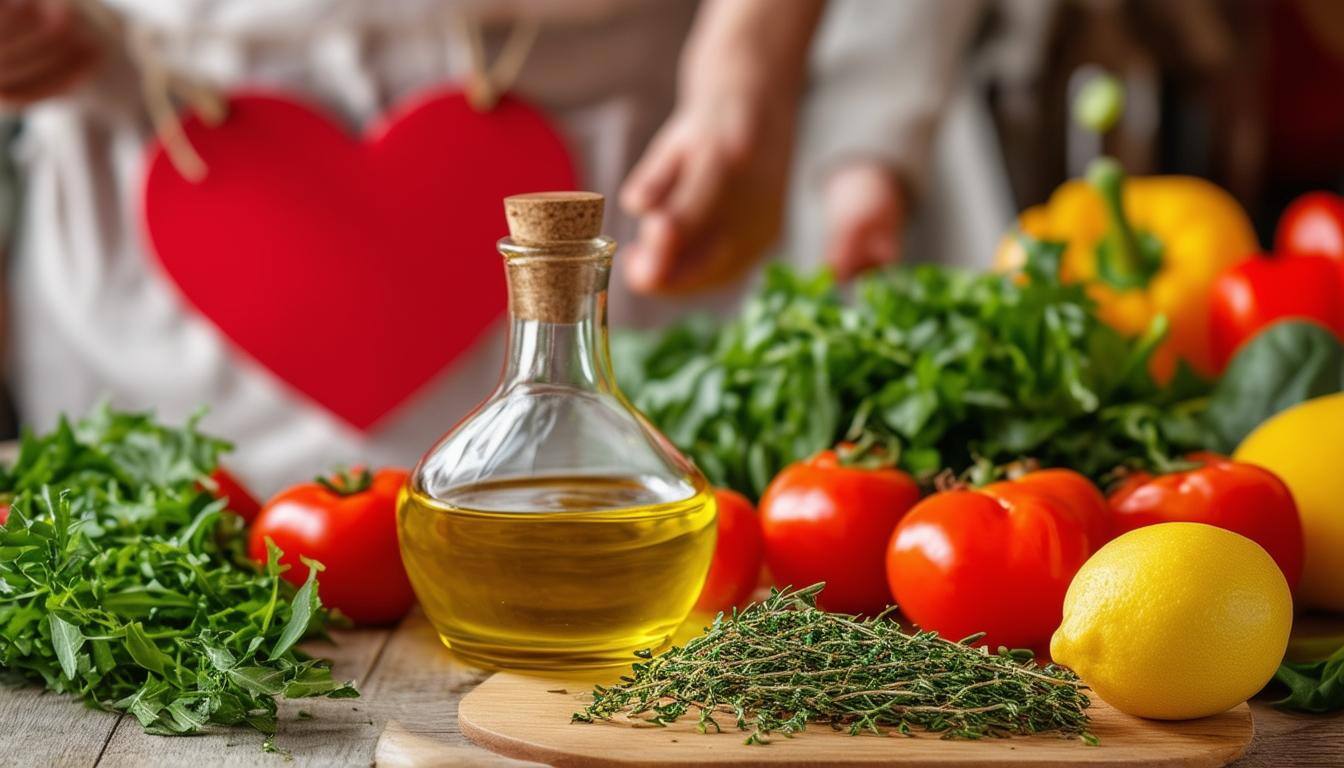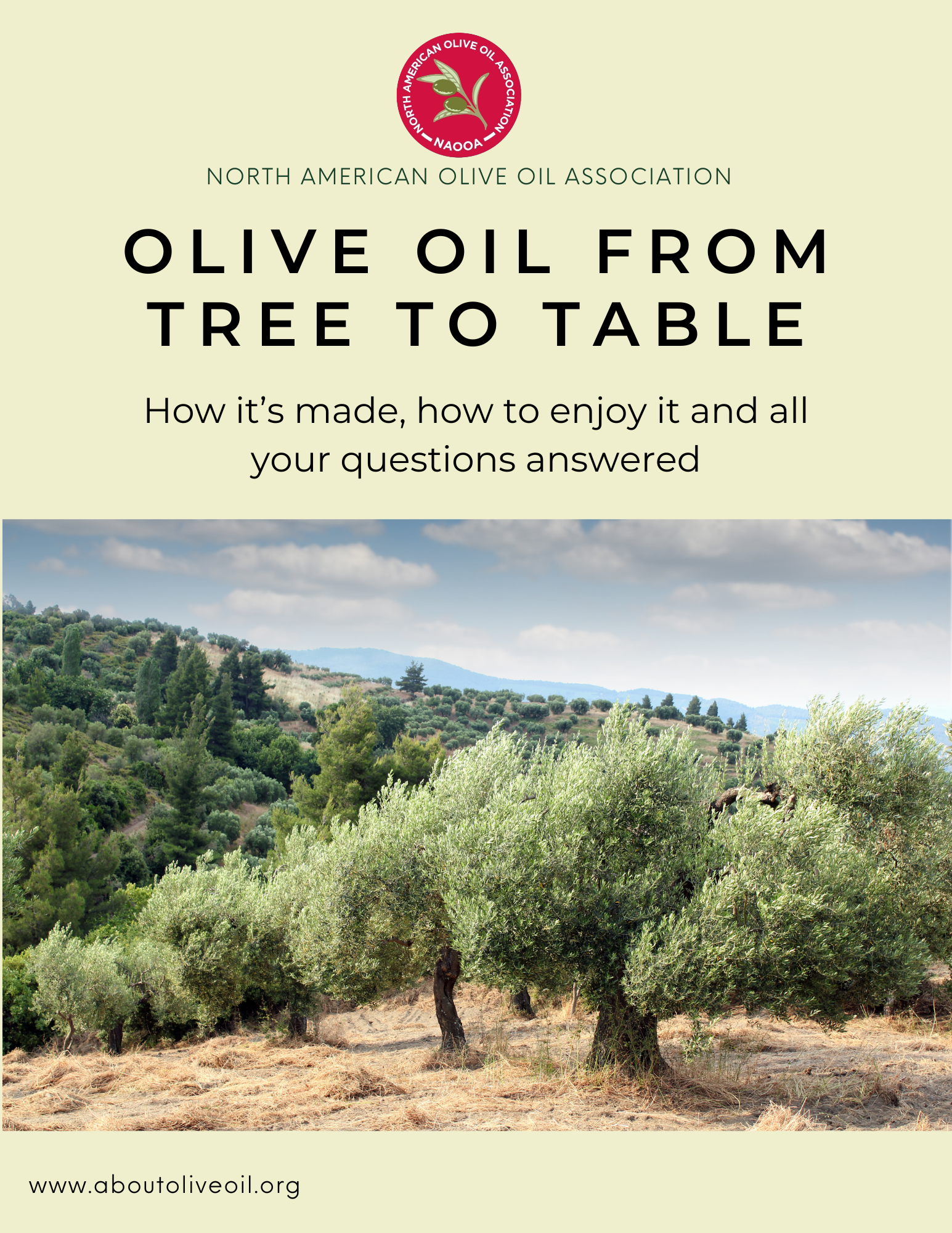February is American Heart Month, a time to focus on the importance of heart health and take actionable steps towards a healthier lifestyle. Discover how olive oil can make a difference for your heart and the hearts of those around you.
History of heart month
February is recognized as American Heart Month, an initiative that began in 1964 when President Lyndon B. Johnson declared the month to raise awareness about heart disease, the leading cause of death in the United States. Since then, organizations like the American Heart Association (AHA) and government agencies such as the National Heart, Lung, and Blood Institute (NHLBI) have played crucial roles in promoting heart health and encouraging Americans to take steps to lower their risk of cardiovascular diseases. The goal of American Heart Month is to inform the public about the significance of maintaining a healthy heart through lifestyle choices and to support research and policies aimed at reducing the prevalence of heart disease.
How can olive oil help protect your heart?
Olive oil is renowned for its heart-protective properties, primarily due to its high content of monounsaturated fats, particularly oleic acid. These healthy fats can help reduce bad cholesterol levels in your blood, which can lower your risk of heart disease and stroke.
In addition to healthy fats, extra virgin olive oil in particular is rich in antioxidants and polyphenols, which have anti-inflammatory properties. These compounds help reduce inflammation, a key factor in heart disease development.
The American Heart Association recognizes olive oil as a heart-healthy oil. They note that consuming more than half a tablespoon of olive oil daily is associated with a 15% lower risk of cardiovascular disease and a 21% lower risk of coronary heart disease. Replacing one teaspoon of butter, margarine, mayonnaise, or dairy fat with the same amount of olive oil was associated with a 5% lower risk of any cardiovascular disease and a 7% lower risk of coronary heart disease.
Furthermore, the U.S. Food and Drug Administration (FDA) has acknowledged the benefits of oleic acid, the primary monounsaturated fat in olive oil. The FDA allows a qualified health claim stating that consuming oleic acid in edible oils, such as olive oil, may reduce the risk of coronary heart disease.
Incorporating olive oil into your diet, especially as a replacement for saturated fats like butter or margarine, can be a beneficial strategy for heart disease prevention. Its unique combination of healthy fats and antioxidants makes it a superior choice for promoting cardiovascular health.
You only need a small amount to get started. Researchers developed statistical models to simulate what would happen if a person swapped out 0.75 tablespoons of margarine, butter, mayonnaise, or other vegetable oils with olive oil. This switch reduced the chances of dying from all causes. Substituting olive oil for other vegetable oils such as canola, corn, safflower, and soybean didn't have the same effect, the study showed [1].
Heart-Healthy Eating: Tips and Recipes with olive oil
Incorporating olive oil into your diet can be a delicious and easy way to support heart health. Here are some tips and recipes to get you started:
- Replace store-bought salad dressings with homemade dressings using olive oil. Combine it with balsamic vinegar, lemon juice, and your favorite herbs for a quick and heart-healthy dressing.
- Sauté vegetables in olive oil instead of butter or other oils. This not only enhances the flavor but also adds a heart-healthy boost to your meals.
- Try baking with olive oil. Substitute olive oil for butter in your baking recipes to reduce saturated fats. You can also use olive oil instead of vegetable oil in brownies.
- Drizzle olive oil over fruit salad, oatmeal, yogurt or avocado toast at breakfast.
- Blend olive oil into smoothies or your morning coffee.
- Mix into nut butters. Give your peanut/almond butter or Nutella an upgrade by stirring in a little extra virgin olive oil. This not only makes the nut butter smoother but also enhances its nutritional profile with additional antioxidants and healthy fats.
- This may sound unconventional, but a drizzle of high-quality extra virgin olive oil over vanilla or chocolate ice cream creates a luxurious texture and a gourmet experience. Finish it with a sprinkle of sea salt for an unexpected but delicious twist.
Spread Awareness in Your Community
Raising awareness about heart health can have a significant impact on your community. Here are some ways to get involved:
1. Join the #OurHearts movement by sharing on social media how you’re working with friends or family to be heart healthy. Encourage your friends and family to do the same. Be sure to use the #OurHearts hashtag!
2. Wear red on the first Friday of February for National Wear Red Day® to raise awareness about heart disease and encourage others to do the same.
3. Set up an online support group with friends and family to encourage each other in your goals to eat healthier, manage your weight, and quit smoking.
Utilize Resources from the American Heart Association and NIH
The American Heart Association (AHA) and the National Heart, Lung, and Blood Institute (NHLBI) offer numerous resources to help you maintain a heart-healthy lifestyle. From educational materials to online tools and community events, these organizations provide valuable information and support.
The AHA’s Heart-Check Food Certification Program helps consumers easily identify heart-healthy foods, including olive oil. According to the AHA, olive oil is one of the most heart-healthy foods you can consume.
The NIH provides comprehensive guides on adopting heart-healthy habits, including tips on diet, exercise, and managing stress. Their American Heart Month campaign offers a wealth of information to help you and your community take actionable steps towards better heart health.
Explore these resources to learn more about how you can protect your heart and support the hearts of those around you.
[1] Guasch-Ferré M, Liu G, Li Y, et al. Consumption of Olive Oil and Risk of Total and Cause-Specific Mortality. J Am Coll Cardiol. 2022;79(2):101-112. doi:10.1016/j.jacc.2021.10.041.





